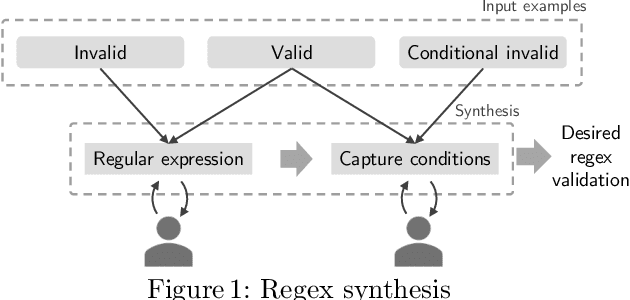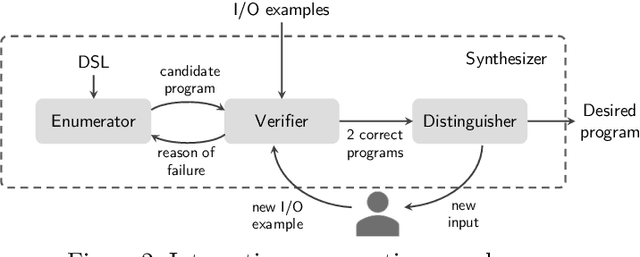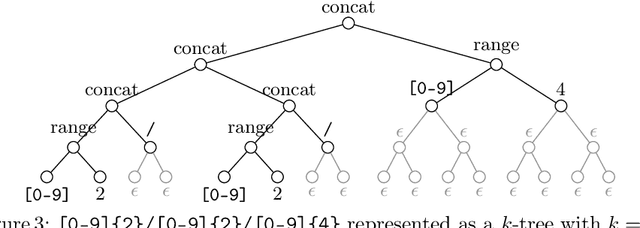Margarida Ferreira
Hypergraph-Guided Regex Filter Synthesis for Event-Based Anomaly Detection
Sep 08, 2025Abstract:We propose HyGLAD, a novel algorithm that automatically builds a set of interpretable patterns that model event data. These patterns can then be used to detect event-based anomalies in a stationary system, where any deviation from past behavior may indicate malicious activity. The algorithm infers equivalence classes of entities with similar behavior observed from the events, and then builds regular expressions that capture the values of those entities. As opposed to deep-learning approaches, the regular expressions are directly interpretable, which also translates to interpretable anomalies. We evaluate HyGLAD against all 7 unsupervised anomaly detection methods from DeepOD on five datasets from real-world systems. The experimental results show that on average HyGLAD outperforms existing deep-learning methods while being an order of magnitude more efficient in training and inference (single CPU vs GPU). Precision improved by 1.2x and recall by 1.3x compared to the second-best baseline.
FOREST: An Interactive Multi-tree Synthesizer for Regular Expressions
Dec 28, 2020



Abstract:Form validators based on regular expressions are often used on digital forms to prevent users from inserting data in the wrong format. However, writing these validators can pose a challenge to some users. We present FOREST, a regular expression synthesizer for digital form validations. FOREST produces a regular expression that matches the desired pattern for the input values and a set of conditions over capturing groups that ensure the validity of integer values in the input. Our synthesis procedure is based on enumerative search and uses a Satisfiability Modulo Theories (SMT) solver to explore and prune the search space. We propose a novel representation for regular expressions synthesis, multi-tree, which induces patterns in the examples and uses them to split the problem through a divide-and-conquer approach. We also present a new SMT encoding to synthesize capture conditions for a given regular expression. To increase confidence in the synthesized regular expression, we implement user interaction based on distinguishing inputs. We evaluated FOREST on real-world form-validation instances using regular expressions. Experimental results show that FOREST successfully returns the desired regular expression in 72% of the instances and outperforms REGEL, a state-of-the-art regular expression synthesizer.
 Add to Chrome
Add to Chrome Add to Firefox
Add to Firefox Add to Edge
Add to Edge